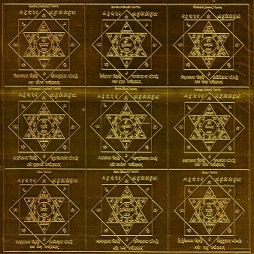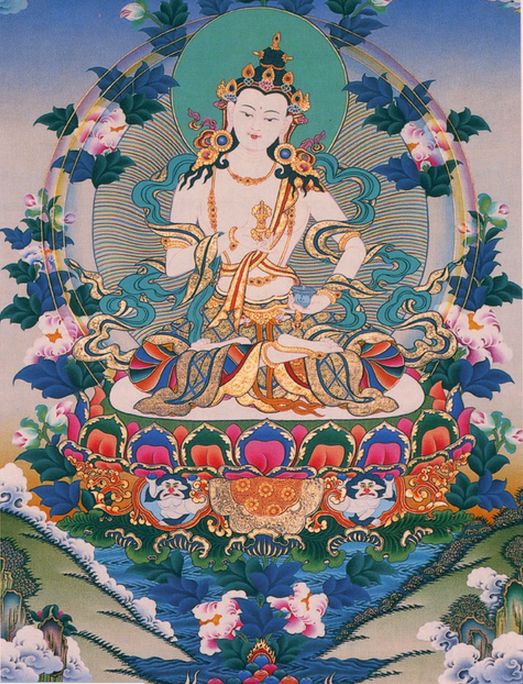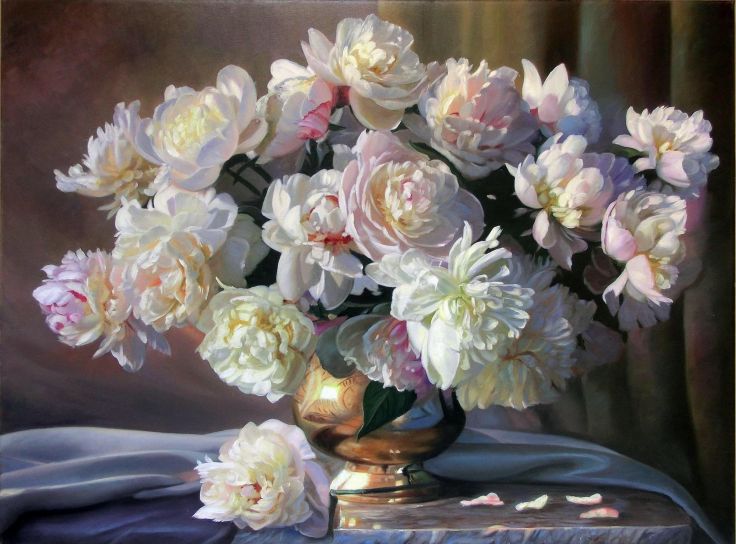
Vimshottari Dasha - Rashi - Gochara - Bhava - Graha - Ratna - Nakshatra - Amsha - Karaka - Varga - Bala

- Surya for Tula nativity
- Chandra for Tula nativity
- Mangala for Tula nativity
- Budha for Tula nativity
- Brihaspati for Tula nativity
- Shukra for Tula nativity
- Shani for Tula nativity
- Rahu-Ketu for Tula nativity
Tula indriya-lagna Friendly and Non-Friendly Domain Rulerships
OM shum shukraya namah
OM dram drim draum sah shukraya namah
OM sri ram dasrathaye namah
OM tatva niranjnaya tarakaramaya namaha
NavaGraha AdhiPati

OM kram krim kraum sah bhaumaya namah
Rulership Portfolio
measured from
lagna = ligne = line of
तुला
Thauli - Thula - Thulam
Zugos - Juka - Yugya
Vanika - Vaṇija - Baṇija
Dhatah
Dvi
Mānuṣa
Paṇana
with Sacred Jewels general recommendation for Tula nativities


Kuja = dhanapati-2 + yuvati-pati-7
[collecting-preserving dhana-pati for Tulā -born]
- 2-heritage, face, voice, mouth, knowledge, tradition, treasury, accrued values, banking, asset-containment, story-telling, lineage continuation, family-line, genetics, language, history, face-voice-hair, family heritage
[bargaining-balancing yuvati-pati for Tulā -born]
-
measured from Tula indriya-lagna or Tula-Chandra; partner-effects from Thula navamsha
yuvati-pati-7 regulates the interpersonal consulting, advising, marital, and business relationships
dhanapati-2 regulates the family history, face and eyes, speech and song, food and mouth, treasury of valuable goods and knowledge
Kuja = treasury + alliances
Vimshottari Dasha periods of Mangala have a certain compensatory power.
-
dhanapati-2 can energize the Treasury (2) of money and knowledge.
-
yuvati-pati-7 can energize the building of alliances, and connect the native to new advisers such as physicians, attorneys, brokers, etc. The negotiation skills are fueled and sharpened like a fierce warrior's sword.
Family heritage
Due to competitive and vital Mangala's rulership of the house of historical accrual (skanda), thula natives typically = Raised in a family tradition which values competitive ambition, penetrating insight, medical-surgical skills, secrecy, and psychological control.
Mangala = lord of 10th-from-10th. As the site of counseling and professional advising relationships, Yuvati bhava is nearly as influential in governance behaviors as is the karma-bhava-10.
Kuja's fast, independent, direct and competitive style, focused on"alpha" dominance and winning, is not always helpful in leadership roles which require more slow-paced and group-oriented movement.
The Thula leaders who benefit most from advising and who can hold diplomatic roles successfully may have some constraint upon Kujar.
Death: fleshly and metaphorical
Nevertheless Mangala brings dematerialization. In the earlier years of the Tula nativity, mangala bhukti typically indicate fleshly death for the mother, father, and other family members. In the later years, mangala = the sharp scissor which cuts that silver cord linking the spirit into the Earthen-body .
Often Kuja's death action = metaphorical, especially in regard to psychological separation from difficult family members and ending of outdated interpersonal relationships. Metaphorical death = one runs ahead, leaving behind the relationship with a friend, lover, business or marital partner, family member or other person.
Mangala signifies a burst of self-directed energy which tells the native to get ahead . Speeding past these outdated relationships (7) one no longer interacts with the former connections. Thus a periods of empowered Mangala can signify the end of a romantic relationship, or a cutting of family ties.
dhanapati-2 Mangala activates the family history. Kuraja the fast-running warrioroften has a rather competitive relationship to members of the birth family.
Tula-1 may find oneself rather quickly out-pacing the limits of the original family-culture. Mangala encourages Tula-1 to move forward individually much faster than the whole family group can move together. Thula natives have an overall pattern of"running faster" than the family group.
With no necessary malice aforethought, tula-1 may bolt forward, leaving a slower-thinking, slower-adapting family far behind as one races toward the winner's line in matters of the treasury of valuable goods and knowledge.
dhanapati-2 Mangala also energizes the mouth. One tends to speak the truth and rather directly too. This behavior itself is often enough to facilitate a split with a family that may not be ready to hear Tula's truth. Mangala bhukti often bring Thula to the dentist's chair, and may signal a new food diet.
Each Vimshottari mahadasha provides nine sub-periods (bhukti). One of the nine bhukti is ruled by Mangala.
The characteristic results of Mangala bhukti detailed below will give a more dramatic experience if the mahadasha-pati receives the drishti of Kuja.
Mangala/Mangala bhukti yield very strong effects presuming that Kuja is not handicapped by rashi, drishti, or bhava. Also, periods of Mangala/Rahu and Mangala/Ketu when either node = yuti Mangala, or either node = in a rashi of Mangala, may give striking results.
Competitive, life-loving, vital, hunting, muscular, pursuing, penetrating, animal-nature, bloody, sensing and discovering Kuja controls
-
[bhava-2] = family history and values acquisition
Periods of Mangala bring wealth acquisition; accumulation of values such as art, music, food, and language collections; development of speech and song; attention to the face and hair; active engagement (positive or negative) with the family history and their values lineage.
-
[bhava-7] of alliances and contracts
Periods of Mangala bring heightened pro-active physical and social energy to build equal partnerships, dynamic counseling and advising behaviors, energetic marriage and business contract negotiations, vital consideration of mutual interest between any two equal parties; activity WRT paired organs in The earthen body ; active development of the relationships which support the career (7th = 10th-from-10th)
For Tula indriya-lagna, angaraka periods yield results consistent with Rulerships :
Career, ability to Govern, creating an Orderly Environment
as planetary patron of both 10th-from-10th and 5th-from-10th, Angaraka is an excellent career graha for the Tula indriya-lagna native.
-
10th-from-10th = excellent career effects through reputable advisors
-
5th-from-10th = very fortunate expression of speculative intelligence in leadership roles. The native is publicly perceived to be gifted and bright.
Education, belongingness, and properties
as ruler of both 4th-from-4th and 11th-from-4th, Angarika is secure and gainful in matters of education and property, for the Tula indriya-lagna native.
-
4th-from-4th = deep and stable involvement in the roots of social-cultural foundational education. Excellent period for educators and parents.
-
11th-from-4th = gains through foundational education; gains of shelters, such as homes and vehicles; gain through mother's folk customs and the established cultural norms of her people.
Vitality, social Personality and Physical Appearance
as planetary patron of both 7th-from-1st And 2nd-from- 1st, angaraka is an empowered maraka for the Tula indriya-lagna native.
-
7th-from-1st = on the basis of one's own body and vitality, pursuit of mutually beneficial agreement with others. Balancing and re-adjustment of the social personality.
-
2nd-from-1st = On the basis of one's own body and vitality, fulfillment of capacity for conservation of valuable goods and knowledge. Saturation (2) with physical incarnation, to the point that one cannot continue in a state of word-made-flesh. Mangala is an empowered maraka for Tula indriya-lagna, and periods of Mangala can trigger physical death.
Marriage, partnership, peer and Advising Relationships
Thula natives have a marked tendency to marry partners of a competitive or even primitive nature. In contrast to Tula-1, the partner is Typically, amore straightforward and quite physical person not inclined toward sophisticated negotiations or elaborate deals.
Much depends on the character of Mangala in the nativity, of course; but as a general rule one's friends and family may be rather surprised by Tula's choice of mate. Thula is the rashi of harmony and diplomatic relations, but Mangala yuvati-pati-7 is the karaka for fighting and primitive, aggressive behaviors. For all the negotiating skill inherent in Tula, if Kuja is not well configured, marriage can sometimes present the greatest learning-challenge.
The female Thula is attracted to male partners of a vital, athletic, and sexualized type. The male spouse is usually a meat-eater, no stranger to knives or firearms, and capable of great bravery when his brood are in danger. It is indeed often a display of athletic courage which convinces the Thula to accept this otherwise unlikely mate.
-
.
The masculine-identified Thulabirths often pair with a feminine-figure of Mesha-type simple behaviors, slim-hipped and boyish, active and pretty, who has plenty of life-force energy and welcomes a muscular-challenge.
She too is a sexualized person, and if her Thula husband is more concerned with business or social justice her life force may wither and fail.
Such a partner may be a great helpmate, but she operates mainly on the fleshly plane and is not naturally sophisticated unless the Tula's placement of Kuja is quite unusual.
as ruler of both 1st-from-7th and 8th-from-7th, Angarika is a sexualized and transformative relationship agent for the Tula indriya-lagna native. Mangala often brings a new male partner.
-
1st-from-7th = attention to one's own role within relationships, vital energy invested into competitive, sexual and athletic partnerships.
-
8th-from- 7th = circumstantially forced and possibly shocking changes in peer-to-peer agreements. Transformation of the marriage contract. Hidden information emerges regarding the spouse or partner. Sudden breakthrough in negotiations due to emergence of new facts or influ, ences. Meet the in-laws.
family history, acquisition of Money and Knowledge
as planetary patron of both 6th-from-2nd and 1st-from-2nd, Angaraka creates physical contact and confrontation with the family history for the Tula indriya-lagna native. Relatives "come out of the woodwork" . Financially, mangala brings savings (2) and disagreement about money and values (6th-from-2nd).
-
6th-from-2nd = on the basis of one's wealth, knowledge, and historic family lineage values-fulfillment , mangala bhukti bring animosity with the family historyand within the second marriage if any. Acquisitive and hoarding behaviors are over- stimulated, out of balance. Health consequences WRT what goes in the mouth. Debt from and medications for teeth, hair, face, and speech (often a dentist expense; Kuja lord of cutting and sharp edges, can bring surgery.) The first spouse (7) is the conflict agent, against the family or origin and/or against the second marriage.
-
1st-from-2nd = despite the conflict arising from Kuja's role as ruler of 6th-from-2nd, the native is placed into direct contact with the family history. There is competitive and physical energy involved in the family discourse, perhaps sporting contests or strong emphasis on the physical appearance. Money and knowledge are pursued and acquired.
Siblings, teamwork, communication, publications
as planetary patron of both 12th-from-3rd and 5th-from-3rd, Angaraka has a mixed effect on communications, naarrative discourse, and publications for the Tula indriya-lagna native.
-
12th-from-3rd = dissolution of effects from siblings, publications, writing, small-group and team interaction. Periods of dhanapati-2 Kuja will weaken the impact of group-oriented and verbose bhava-3 and empower pro-active personal acquisition of money, knowledge, and family-lineage values-fulfillment .
-
5th-from-3rd = creative intelligence expresses practical skill-based expertise through writing, small-group teaching and training, business administration and publications. However, mangala is also lord of 12th-from-3rd Therefore, the writing may not be published quickly or the native 's duties regarding collecting and storage (2) of historical knowledge may drain the energy from present-era publications.
Children and Divine Creativity
as ruler of both 10th-from-5th and 3rd-from-5th, Angaraka's effects on children improve with time since 10 and 3 are both upachaya angles.
When Mangala bhukti occur in one's maturity (after age 28) the impact on children is favorable due to the native having overcome immature competitive impulsiveness. If the children are born too early it is unfortunate for the children. Tula indriya-lagna should wait to have children until after age 30.
-
10th-from-5th = increased respectability and leadership roles for one's children; public validation or attention to one's literary, political, or celebrity creativity.
-
3rd-from-5th = writing and discussing about intelligence, games, political power, charisma, creativity, and children.
Conflict, imbalance, disease-discomfort, debi
as planetary patron of both 9th-from-6th and 2nd-from-6th, Angaraka is provides the Tula indriya-lagna native with wealth and wisdom from the experience of illness, conflict, and exploitation. Mangala will place Tula-1in difficult and occasionally dangerous work situations. The native goes to work early in life and muscular labor is required, no matter one's station in life.
After the age of 28 the native will find that one's vital power to perform service work such as cleaning and food-handling, and one's incipient medical knowledge gained through poverty situations where no doctor will treat the disease, will lead to appreciable wealth and wisdom, obtained during periods of Kuja.
-
9th-from-6th = fortune through wisdom teachings provided by adversaries, especially in the workplace. Fortune through servants, through repetitive or exploitive labor, through illness, and through debt or usury.
-
2nd-from-6th = energizes The financial well-being and knowledge of one's enemies, one's physicians,. Saturation (2) with animosity, to the point that one cannot continue in a state of disagreement. A new balance (7) is achieved. One may, if Mangala supports it, receive historical knowledge from lineage medical traditions.
Sudden, transformative Change
as ruler of both 7th-from-8th and 12th-from-8th, Angaraka brings Access to secrets for the Tula indriya-lagna native.
-
7th-from-8th = agreements with surgeons, transformative healers, tantriki, and alliance with sources of hidden or occult knowledge. Kuja may trigger the death of a member of the first spouse's family.
-
12th-from-8th= dissolution of the protective wall that surrounds secrets. Revealed information about spousal monies, spousal family (in-laws). Periods of yuvati-pati-7 Kuja will weaken the impact of malefic bhava-8 and empower straightforward, equal-to-equal contractual agreements.
Wisdom Teachings and Teachers
as planetary patron of both 6th-from-9th and 11th-from-9th, Angaraka brings both gainfulness and conflict in the temple, for the Tula indriya-lagna native.
-
6th-from-9th = animosity with university professors, the university itself, temples and priests, and general imbalance-seeking-a-remedy of religious understanding due to Kuja's intense focus on material acquisition (2) and human-to-human contracts (7). Illness of an important teacher, the father, or conflict within the religious order. The family history(2) are the conflict agents in matters of religion.
-
11th-from-9th = gains from wisdom-teachings and religious knowledge. Builds relationships with the community of believers in the sangha, particularly males.
Networks of Friendship, Goals and gainfulness
as ruler of both 4th-from-11th and 9th-from-11th, Angaraka is a highly benevolent
Yogakaraka graha in regard to one's ability to set and attain one's goals, for the Tula indriya-lagna native.
-
4th-from-11th = energized development of foundations upon which to build a larger and more detailed social and conceptual network
-
9th-from-11th = fortune through wisdom teachings provided by networks of association, friends and mentors
Spirit Guides, dreams, prayer, Hermitage, and Sanctuary Life
as planetary patron of both 8th-from-12th and 3rd-from-12th, Angaraka is disruptive and destructive, over-mentalized and secretive, force in the matter of prayer and reflective practice, for the Tula indriya-lagna native. Mangala bhukti are sleep-deprived because the native is so energized and competitive in the physical world.
-
8th-from-12th = eruptive, forced changes in the astral world of dreams and intuitive perceptions. Hidden information emerges regarding foreign lands and matters of the private bedroom. Sudden breakthrough in meditation or reflective prayer.
-
3rd-from-12th = writing and discussing about dreams, mystical and intuitive perception, prayer and sanctuary life.
According to Das, when Mangala occupies Kumbha, the competitive dhanapati-2 + yuvati-pati-7 engages both the native and the life-partner toward earnings (yuvati-pati-7 in 11th from svakshetra)
Predictably, mangala in a rashi of Shani in 5 suggests miscarriage or therapeutic abortion of at least one conception; However, if Guru is strong there may be other live births when Mangala is not the time lord.
-
" You may be cruel, ruthlessly striving to attain the objects of desire and causing terror to your adversaries.
-
You will derive inspiration from your spouse, who will goad you to indulge in self-seeking and money-making activities.
-
There may be a still-birth, which will cause much sorrow."
Sacred Jewels - munga (flawless red coral) for Tula indriya-lagna
QUOTATION from
- G. S. Kapoor. (1994). Gems and Astrology.
- Ranjan Publications, New Delhi . p. 97
" For the Libra Ascendant,
Mars is the lord of two death inflicting houses (maraka houses), the 2nd and the 7th. Moreover, Mars is an enemy of Venus , the lord this Ascendant.
Wearing a Red Coral by the native s of this ascendant should be generally avoided.
The second house is the house of wealth also. Therefore, if Mars is in his own sign in the 2nd, red Coral can be worn with advantage during the Major period of Mars.
As far as the 7th house is concerned, if Mars is there in his sign, this disposition will give rise to a powerful Panchamahapurusha yoga known as Ruchaka yoga , the result of which has been described as under:
-
The person born in Ruchaka yoga will have a strong physique, and will be famous, well versed in ancient lore, king or equal to king, conforming to traditions and customs. He will have a ruddy complexion, attractive body, charitable disposition, wealthy, long-lived, and leader of an army.'
Thus, if there is Ruchaka yoga present in the nativity, the Red Coral can be worn with great advantage, particularly in the Major and sub-period of Mars." [end quote]


[How Readings Work] = [Sample Sacred Jewels Ratna Recommendation] = [Seva]
file update = 31-Oct-2025
[Copyright © 1994-2024 by Barbara Pijan Lama] = [Contact] = [How to Request a Jyotishavidya Reading]
Barbara Pijan Lama Jyotishavidya Vedic Astrology Surya Sun Chandra Moon Mangala Mars Budha Mercury Guru Jupiter Shukra Venus Shani Saturn Rahu Ketu Graha Planets Dasha Timeline Calendar Nakshatra Navamsha Marriage Children Treasury Career Spiritual Wisdom Cycles of re-Death and re-Birth
The information on barbarapijan.com , including all readings and reports, is provided for educational purposes only. Wishing you every happiness and continuing success in studies!

